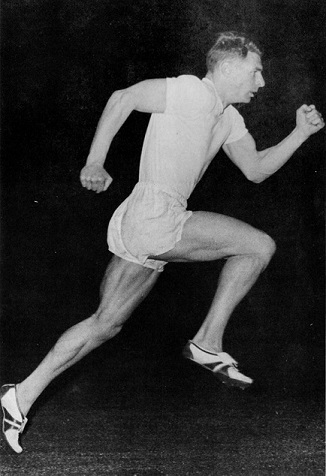New Year Sprint - History
Last of an Era
The New Year Sprint is a unique event in the annals of sporting history, being the last of the old time pedestrian galas. Traditionally known as the "Powderhall", after the original venue of Powderhall Grounds in Edinburgh, the New Year Sprint has been an annual event since 1870, the heyday of pedestrianism (professional footracing) then the sport of the people. The format remains unchanged, with races being handicapped to ensure close finishes whilst betting adds to the enjoyment of the spectators. The days of huge betting coups and malpractice are long gone but the tradition, spirit and atmosphere remain. To win the "Big Sprint" remains the dream of all competitors no matter their age or ability.
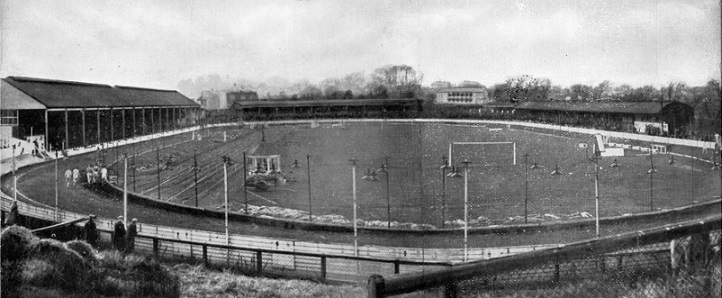
New Powderhall Grounds, ancestral home of the New Year Sprint. Photo taken in 1940.
Early Champions
During its long history, the "Sprint" has produced many top class competitors. Dan Wight of Jedburgh, the inaugural winner in 1870, heads a long list Scottish Champions. Other legendary names from the past include Harry Hutchens of London, never a winner, but the fastest sprinter of the century and "scratch" man from 1880 to 1895. The record run of this period is credited to Alf Downer of Edinburgh who in the 1898 sprint ran 128.5 yards in 12.4 secs. On a comparative basis with later "crack" runners, Downer stands out as a great all round running champion.
The First World War period witnessed the great Australian champion Jack Donaldson and England's Willie Applegarth, a brilliant former amateur. The most famous winner of all was Willie McFarlane of Glasgow who achieved the unique distinction of winning the event two years in succession, the second time from the scratch mark in 1934.
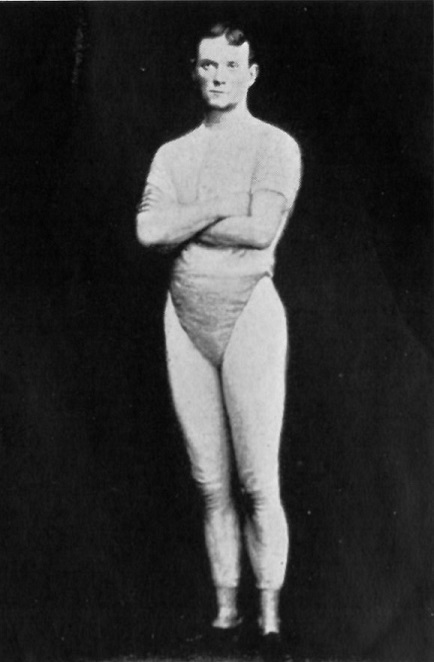
Dan Wight
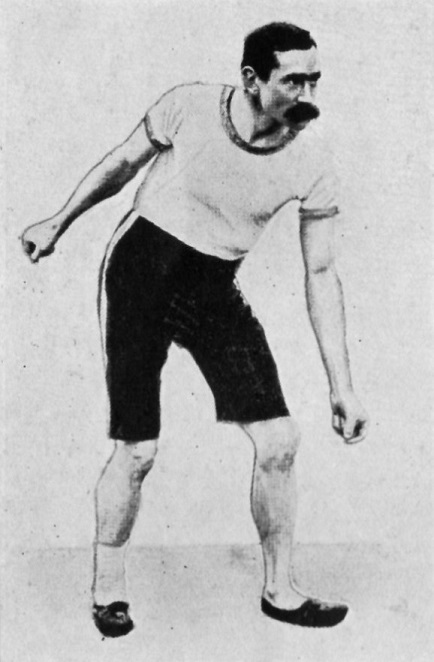
Harry Hutchens
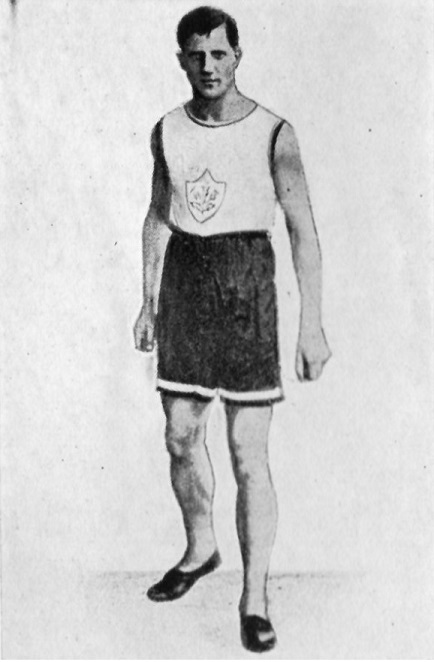
A. R. Downer
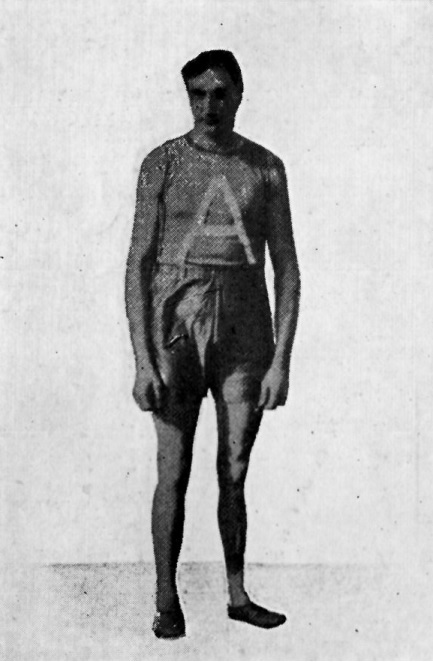
Jack Donaldson
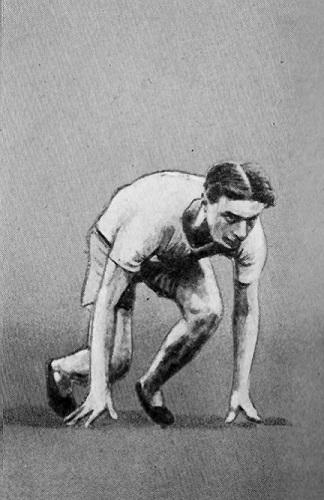
Willie Applegarth
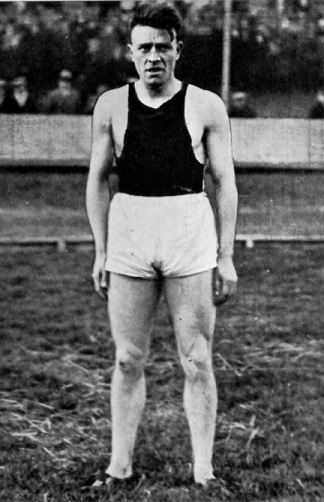
Willie McFarlane
Post War Years
During the late 1940s, Albert Spence from Blyth dominated the scene running in five finals and winning the 77th New Year Sprint in 1947. The star performers of the 1950s were Australia's Eric Cumming and Barnie Ewell of the USA, second in the 1948 Olympics. The 1960s and 70s produced many top flight sprinters but two stood out as being of world class ability, namely Ricky Dunbar of Edinburgh, winner of the 94th Sprint in 1963, and George McNeill of Tranent, winner of the 101st Sprint in 1970 and still 120 yards world record holder.
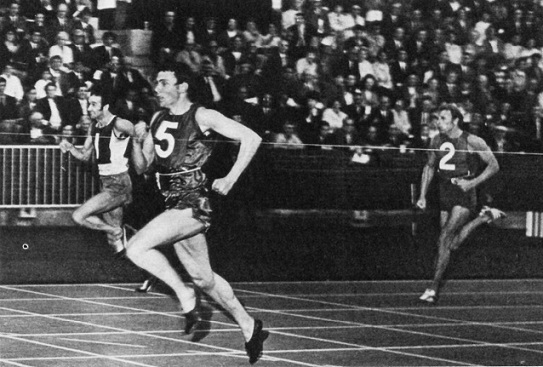
George McNeill setting 120 yds world record
Late 1900s
The 1980s saw exceptional performances from Americans Kipper Bell and William Snoddy who won the 115th New Year Sprint in 1984, and 118th in 1987, respectively. Bell's cross-tie winning time of 10.75 secs from a start of 2.25 metres represented 10 yards inside "evens", almost certainly the fastest running ever witnessed at The Sprint. Snoddy, who was in the Guiness Book of Records for the fastest ever recorded 100 metres (a very wind-assisted 9.87 secs) would have represented his country at the Moscow Olympics, but for the boycott.
That decade also saw former winners Roy Heron (109th New Year Sprint in 1978), Gus McQuaig (112th in 1981), Andrew Walker (113th in 1982), Neil Turnbull (114th in 1983) and Willie Fraser (116th in 1985) reinstated and perform with distinction on the amateur scene. Doug Walker scorched to victory in the 126th New Year Sprint in 1995; his heat time of 10.95 secs off 2.25 metres equated to 8 yards inside "evens". Walker went on to win the European 200 metres Championship in 1998.
The 125th staging of the Sprint in December 1993 saw a historic change in direction for the event as amateur runners competed for the first time due to a landmark agreement between the SGA and the BAAF.
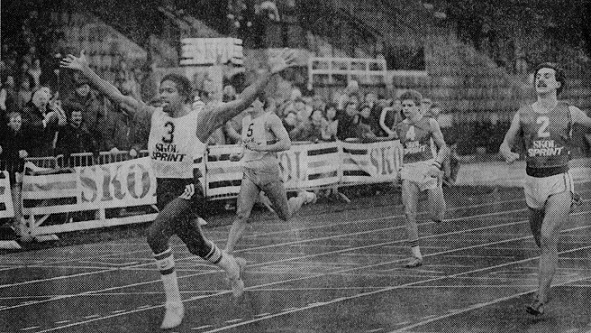
Kipperr Bell winning the 114th New Year Sprint
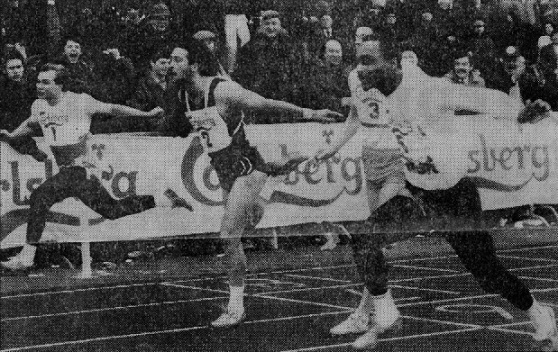
William Snoddy (r) winning the 117th New Year Sprint
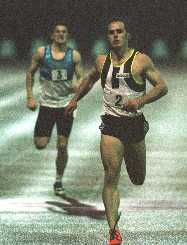
Doug Walker winning 300 yds at the 130th New Year Sprint
New Millenium
The 131st New Year Sprint held in December 1999 saw the action move to Musselburgh Racecourse from Meadowbank Stadium, home for the last 30 years. Bad weather thwarted attempts to stage the New Year Sprint final alongside the Christmas National Hunt meeting, as it did the following year. However, in December 2001, for the 133rd New Year Sprint, runners and horses finally competed in the same meeting.
The 132nd New Year Sprint, with the final in January 2001, saw Nick Smith become the youngest ever winner at the age of 18 years and one month. The minimum age was lowered from 18 to 16 a couple of years later and four 16 year olds have won since: Patrick Swan (136th), Craig Robertson (139th), Ben Robbins (144th) and Cameron Tindle (146th). At the other end of the spectrum, 71 year old European Masters Champion Tony Bowman became easily the oldest New Year Sprint winner at the 138th meeting in December 2006.
The race for the title of first ever female New Year Sprint winner started hotting up in the early 2000s. Gemma Nicol was beaten by inches in the 133rd Sprint in 2002 as was Karen Cochrane (or Steede, as she was then) the following year. Fiona Cleat was a close second in the 142nd in 2011, but the honour finally fell to Jazmine Tomlinson who won the 147th staging in 2016.
The landmark 150th New Year Sprint in 2019 saw Greg Kelly become the event's sixth dual winner, having won two years prior. Greg was the first dual winner since Willie McFarlane, over 80 years previously.
COVID-19 restrictions resulted in the delayed 152nd New Year Sprint taking place in mid summer, for the first time in its history. Women dominated the medal placings with Molly Reville taking gold and becoming the second female winner.
The 154th New Year Sprint culminating on 1st January 2023 saw the end of promoter Frank Hanlon's record breaking stewardship that started with the 123rd in 1992.
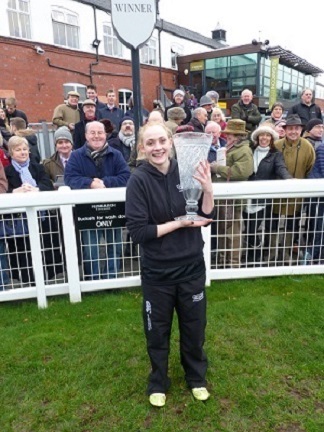
Jazmine Tomlinson - first ever female New Year Sprint winner
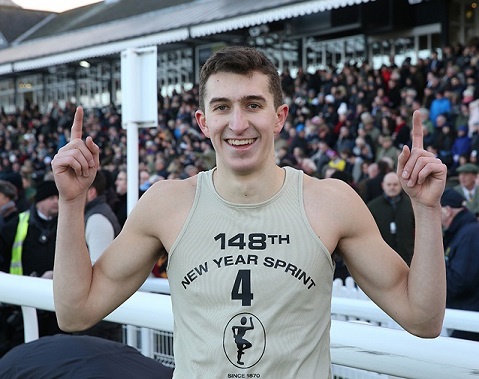
Dual Winner Greg Kelly
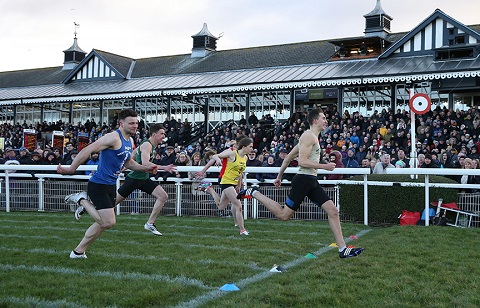
Greg Kelly winning the 148th New Year Sprint in 2017
Want to know more?
The following books recount the history of the New Year Sprint and professional athletics in general.
- Gold at New Year by John Franklin, printed by The Tweeddale Press Ltd., Hawick, covers the history of the Sprint up to 1970. It also contains fascinating "behind the scenes" accounts of numerous victories.
- PowderHall and Pedestrianism by David A. Jamieson, published by W. & A.K. Johnstone Ltd, Edinburgh, is the definitive history of the Sprint and related professional races held until 1943.
- The Unique Double by George McNeill, printed by Watt Chapman, Dunfermline, tells the story behind McNeill's victories in the centenial runnings of the world's most famous professional sprints - the New Year Sprint and the Stawell Gift in Australia.
